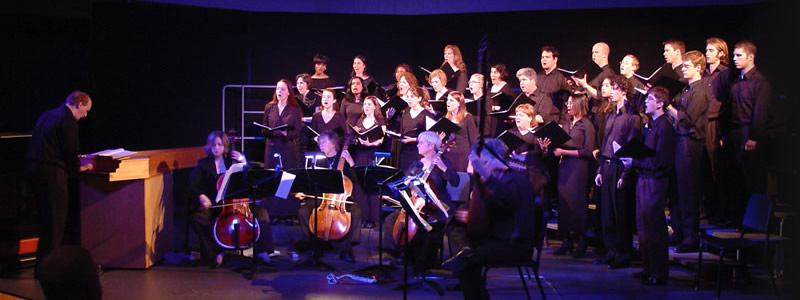About
the concert:
This concert is a joint collaboration between New Trinity Baroque and St. Bartholomew's Episcopal Church.
Marc-Antoine Charpentier was one of the most outstanding musicians in late seventeenth-century France. As a young man he had spent three years in Rome studying with one of the leading Italian composers of the day, Giacomo Carissimi, with whom he acquired valuable first-hand experience of opera and oratorio - both relatively new forms at that time. On returning to his native Paris he put these skills to effective use, composing a number of operas and bringing the dramatic oratorio to France for the first time.
Charpentier’s output of sacred music was prodigious, comprising some thirty-five oratorios, eleven settings of the Mass, over two hundred motets and the well-known Te Deum, the overture of which is used as the signature tune for the Eurovision Song Contest. (It is rather ironic that the music of a composer who faced a continual struggle to achieve recognition during his lifetime should now be familiar to millions of people right across Europe!)
Charpentier was particularly drawn to writing Christmas music, producing instrumental carols, Latin oratorios on Christmas themes, French pastorales and a Christmas mass - the delightful Messe de Minuit pour Noël. This piece dates from around 1690 and was probably composed for the great Jesuit church of St. Louis in Paris, where Charpentier held the important post of maître de musique.
The use of popular carols in church music had long been an accepted practice. In England carols were more often sung than played, but in France noëls figured prominently in the substantial French organ repertoire. The liturgy of Midnight Mass permitted the singing and playing of these Christmas folksongs, and by Charpentier’s time quite complex instrumental arrangements were commonplace. However, Charpentier’s idea of basing a whole mass on these songs was completely original. Altogether there are eleven noëls, most of which are dance-like in character, reflecting the carol’s secular origins. In addition to the carol melodies that he adapted to fit various parts of the mass text, Charpentier also composed new material, such as the slow sections ‘Et in terra pax’ at the beginning of the Gloria and ‘Et incarnatus est’ in the Credo. It says much for the composer’s craftsmanship that these quite different idioms are so seamlessly and convincingly blended together.
Very little of Charpentier’s music was published during his lifetime. In common with a number of his colleagues he suffered greatly from the stranglehold exerted on Parisian music by his illustrious but unscrupulous contemporary, Jean-Baptiste Lully. Only in the late twentieth century has Charpentier’s music seen a substantial revival, with a consequent re-assessment of his true place in French music.
John Bawden, Musical Director,
Fareham Philharmonic Choir (used with permission)
Venue:
Atlanta, St. Bartholomew's Episcopal Church,
8 PM
SEE
DIRECTIONS TO THE VENUES
Tickets:
Regular tickets - $25.00
Discounted* tickets - $15.00
Students - $5
(* Friends of New Trinity Baroque, Members
of Early Music Networt)
 Tickets
are available for purchase
ONLINE (all major credit cards accepted)
or via mail (please send a check payable to
New Trinity Baroque).
Tickets
are available for purchase
ONLINE (all major credit cards accepted)
or via mail (please send a check payable to
New Trinity Baroque).
Reservations
are welcome - please call 770 638-7574 (outside
of Atlanta, call toll free 1-866-EARLYMUSIC),
or email us at newtrinitybaroque@earlymusic.net.
CLICK
HERE
TO BUY TICKETS
Soloists:
Elizabeth Packard Arnold, soprano
Magdalena Wór, mezzo-soprano
Brent Runnels, tenor
Patrick Newell, bass
THE CANTERBURY CHOIR
of St. Bartholomew's Episcopal Church
(Brad Hughley, choir master)
NEW
TRINITY BAROQUE:
on period instruments
Jody Miller, flute (recorder)
Jonathan DeLoach, flute (recorder)
Mirna Ogrizovic, dessus de violon
Ute Marks, haute contre de violon
Sinisa Ciric, taille de violon
Patricia Vas Dias, taille de violon
Martha Bishop, basse de violon
William Hearn, theorbe
Brad Hughley, organ
(great 'Rosales' organ
of St. Bartholomew's Episcopal Church)
Predrag Gosta,
clavecin & direction
Pitch (Kammerton): a'=392Hz



